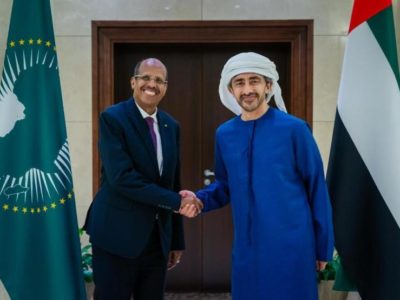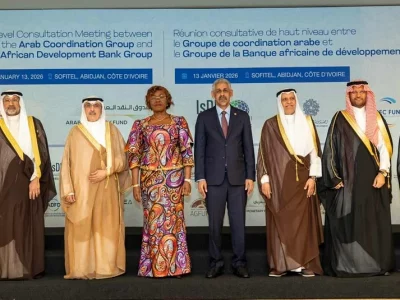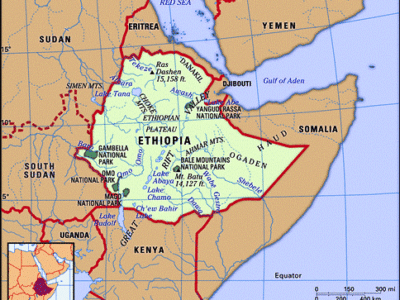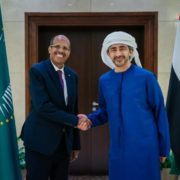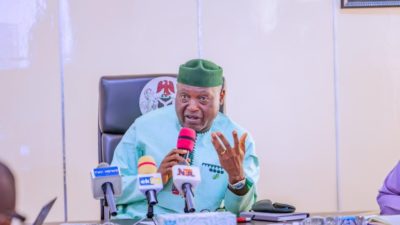African governments are now turning instead to Asia as a partner in development, writes Amit Jain.
Prime Minister Luc Adolph Tiao of Burkina Faso was effusive in his praise for a little Asian city-state that I now call home. As I stepped into his office he gripped my palm firmly with both hands and said, “Singapore is a model”. That casual remark, in an instant, signaled a change in Africa’s view of the world.
African governments have for decades sought aid, trade and assistance from the West but are now turning instead to Asia. New data from UNCTAD shows that in 2011 Malaysia became the third biggest FDI investor in Africa (US$19.3 billion), followed by China (US$16 billion) and India (US$14 billion).
PM Adolph’s admiration for Singapore was well founded. Singapore is a gleaming showcase of what can be achieved when sound public policy creates healthy business environment. It is a thriving financial center, a hub of commercial activity and a showcase of multi-cultural harmony.
This makes Singapore an excellent ‘marketplace’ for ideas as well as investments. One such idea now widely shared by African leaders and development economists is the need to foster competitiveness.
Riding mostly on the back of a boom in global demand for commodities, natural resources and energy, the continent has witnessed an unprecedented period of growth. Once labeled as a ‘hopeless continent’ Africa is now seen as a place to do business.
Visits by African leaders to Asia are now frequent and there is frothy talk of a new ‘era of South-South cooperation’. Only this time it based not on ideological grand standing but economics. If market reports are to be believed then Africa appears to be coming of age. Its economy is growing faster than almost any other region in the world.
It is also a much less violent place. Many of the vicious civil wars and deep internal conflicts of the past have been arrested. Africa is more at peace now than it has been for decades.
But as population swells – Africa’s is set to double over the next 40 years – new jobs will have to be created, not just in the teeming urban sprawl but also in the countryside. That means creating adequate employment opportunities that not only absorb the rising numbers of young joining the workforce (60% those between the age of 15 to 24 are unemployed) but also meet their rising expectations.

This is where the Asian experience counts. China, Malaysia, Thailand, Vietnam and India have all made policy interventions that have allowed healthy, competitive and job-creating ‘value chains’ to take root. These often take the form of Public-Private Partnership (PPP) projects such as Special Economic Zones, industrial corridors and commercial farms. Created by the state but guided by market principles these ‘growth clusters’ have improved economic conditions, strengthened competitiveness and cut poverty. That makes them good models for Africa.
The Bagre Growth Pole project, on which I worked, is a US$115 million (S$142 million) World Bank funded project aimed at attracting diversified private investment in a vast agricultural zone in south-east Burkina Faso. Taking advantage of Singapore’s pre-eminent position as a business hub the Bank has drawn investor interest from Asia.
Having played a lead role in this ‘marketing’ exercise I discovered quickly how sound that strategy is. Asia’s new found economic influence is already visible. The most ubiquitous brand that greets a visitor on the streets of West Africa, for instance, is Airtel, a telecom major from India. African traders do brisk business selling cheap Asian made home appliances and electronic goods in the noisy bazaars of Ouagadougou, Accra and Libreville.
Homegrown Asian firms, long used to dealing with bureaucratic red tape, petty corruption and a notoriously price sensitive consumer are well placed to doing business in Africa. This explains why the most thriving of all entrepreneurs in the continent are the Indians and the Chinese.
My own flight from Paris to Ouagadougou was full of them. Thanks to their presence the African consumer, for years underserved and overcharged, is finally enjoying the benefits of low cost mobile telephony and fast moving consumer goods.
Chinese and Korean firms have upgraded ports, container facilities and power stations. Even the roads that were once the preserve of Western marque brands are now clogged with vehicles made in Asia.
Notwithstanding the charges of bribery, influence peddling and lack of transparency in contract arrangements there can be no denying that such hard infrastructural improvement is getting Africa plugged into the very same global supply chain revolution that has lifted millions out of poverty in Asia.
But unlike Asia, manufacturing is almost non-existent in Sub-Saharan Africa. What little that does exist employs no more than 10 million and that too almost entirely in one country – South Africa.
Unless targeted investments are made in skills training, manufacturing and other connected value adding services improved connectivity could also strip the continent of its plentiful natural wealth. Africa’s exports are still mostly extractive metals, minerals and oil. Its growth is largely on account of what grows over land and what lies beneath.
Economists call it the ‘resource curse’, a theory that postulates that natural wealth in developing countries perpetuates corruption, cronyism and conflict. But by creating a rules-based market friendly investment climate, improving infrastructure, developing value chains and investing in human capital (read training and education) African states have a shot at breaking out of the poverty trap.
Asia has gone that difficult road before and come out better. If Africa is ever to realize its true potential then it needs to learn from the Asian experience as much as it needs its investments.
Acknowledgements
Amit Jain is a Singapore based consultant and worked on the Bagre value chain project in Burkina Faso for the World Bank.http://www.asiancenturyinstitute.com/international/239-african-development-with-asian-characteristics
Visits by African leaders to Asia are now frequent and there is frothy talk of a new ‘era of South-South cooperation’. Only this time it based not on ideological grand standing but economics.


